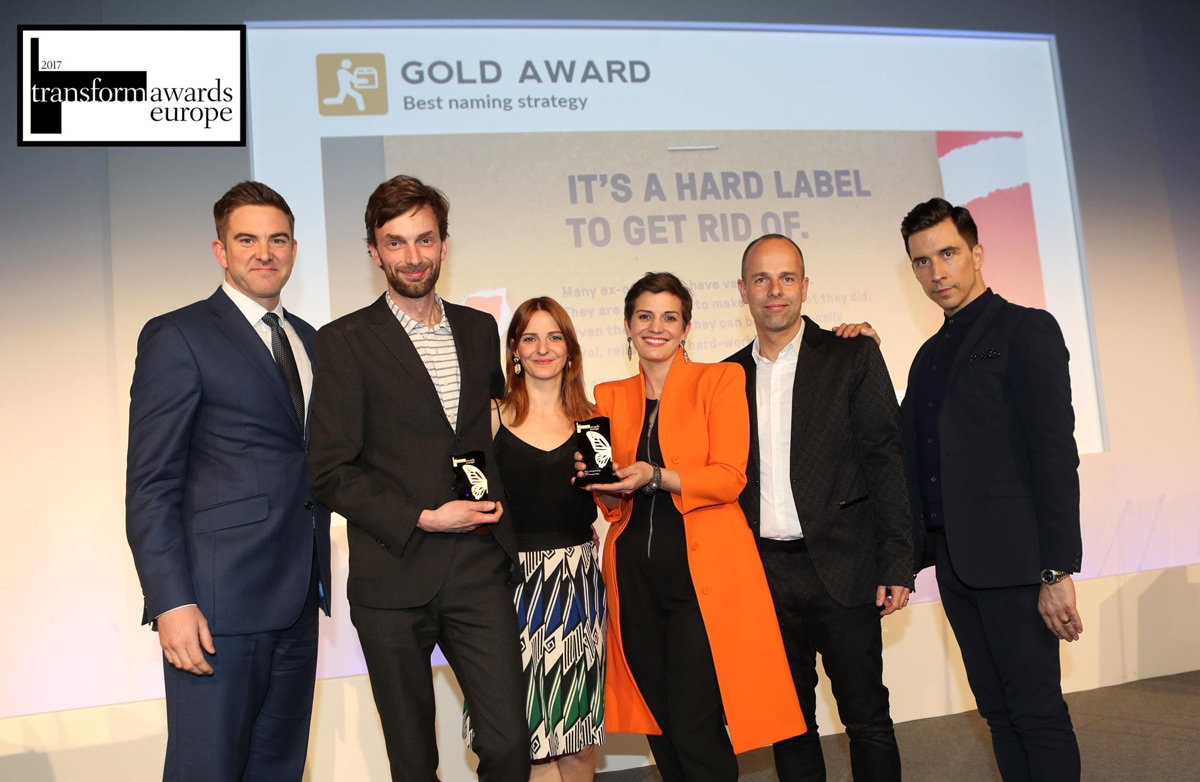Whilst we celebrate what was a true team effort, it’s worth reflecting on what made this project so successful.
1. We really did engage with the audience
Every agency will say this, the current buzzword being ‘Design Thinking’. But its one thing saying it, and quite another really doing it. I sat opposite a murderer. I listened to a middle-aged lady who had defrauded her employer. I watched a recruitment agent recount heartbreaking stories from people who had made one silly mistake and lost everything. Make no mistake, these people did wrong and they know it. But the difficulties people face reintegrating into society after they have served their time are unbelievable. (I’ve also learned just how easy it is to fall foul of the law and end up in a cell. It’s pretty scary.)
Only by experiencing these people, by understanding their stories, their regrets and extraordinary motivation to turn their lives around, could we have come up with a name like The Exceptionals.
2. We entered the project with an open mind
There are many charities helping ex-offenders back into work. The real barrier, we found, lies in overcoming fears, misconceptions and bureaucratic processes on the employer side. So we aimed the strategy at helping employers overcome these hurdles, something that is badly needed – after all a CEO might be inspired and say let’s do this, but it is the whole organisation, from HR to the supervisors and colleagues that have to be willing to work with an ex-offender.
By focusing on the potential employer we found a niche that hasn’t been served well – and yet is a fundamental piece of the puzzle. You can train ex-offenders as much as you like, if you don’t find employers willing to give them a chance, the will not get a job (and the barriers are real). I should note at this point, that we found many enlightened businesses are engaging with this topic successfully, but few are willing to go public. If you’re interested, some of them, along with the business case, are here.
3. We started small and are constantly evolving it
In an ideal world – and in many case studies that are written with hindsight – the story is linear, logic and clear: ‘This was the problem, here is our brilliant solution.’
But the reality is different. We set a small target – get fifty employers to consider it and ten to give it a try – but we learned that convincing them to try isn’t the problem, the problem lies in how they actually do it. So the project has moved from a campaign to a growing platform and resource that brings together the various parties that need to talk to each other. And its potential is now much bigger that initially thought. Because we started small, we could adapt, learn what’s working, and evolve.
There’s a lot to do still and the team are working on finding more partners and providing more practical information for would-be employers. The charity is also planning to employ an ex-offender – a person who will work part-time whilst studying for his masters at Oxford – yes, they often aren’t what you think!
So last night’s success is based on really engaging with the customer, remaining flexible in our goals (but not the vision!) and starting small so it can grow and adapt without wasting precious time and resources.
We’re grateful for the great relationship we have with Adriana and Richard of the Traverse Trust who are behind the project, for their engaging in our process and willingness to think flexibly. They tell us the project is gaining traction across the world and as we continue building it (big cheers to Aleksandra!), the complete set of awards from last night are a lovely milestone on our journey together.
Gilmar Wendt is the Founder and Principal of GW+Co.
Contact him on gw@gilmarwendt.com @gilmarwendt


